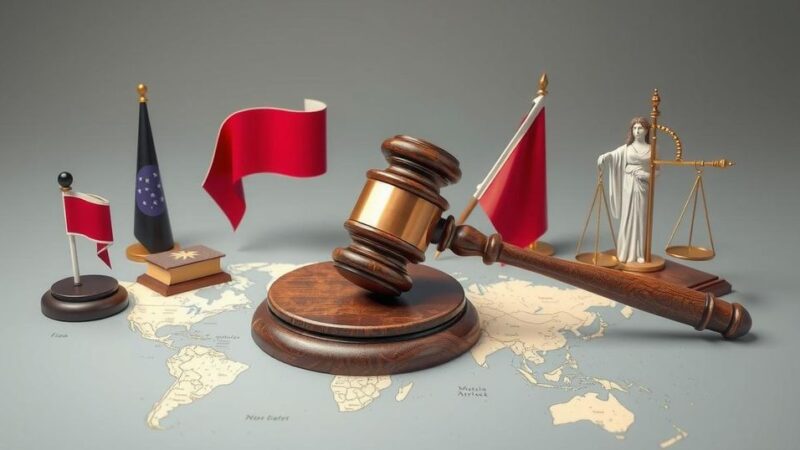A recent study highlights the dominance of Chinese companies in the cobalt market, with them controlling two-thirds of the global supply sourced mainly from the Democratic Republic of the Congo. As the U.S. contends with the implications of the foreign entity clause in the Inflation Reduction Act, it faces considerable risks to its de-risking strategies, particularly given that 60 percent of mined cobalt is projected to be high-risk by 2024.
The current dominance of Chinese companies in the critical mineral market poses significant challenges to the United States’ plans to de-risk its supply chains. A study conducted by Benchmark Minerals reveals that Chinese entities have established a commanding presence, controlling approximately two-thirds of the cobalt extracted from the Democratic Republic of the Congo (DRC). This region alone is responsible for an estimated 74 percent of global cobalt production, signaling a precarious situation for U.S. policies, particularly in light of the foreign entity clause as outlined in the Inflation Reduction Act (IRA). CMOC, formerly recognized as China Molybdenum, stands out as a leading cobalt producer, operating from its two major sites in the DRC, namely the Tenke Fungurume mine and the Kisanfu project. According to Benchmark’s analysis, these assets are likely to be affected by the IRA’s foreign entity of concern clause (FEOC). The study projects that by 2024, a staggering 60 percent of the global supply of mined cobalt may be sourced from entities that are classified as FEOC, or are deemed at “high risk” of assuming such classification. This classification encompasses businesses that are owned, controlled, or subject to the jurisdictions of countries identified as threats to U.S. interests such as China, Russia, Iran, and North Korea. Such pervasive control of cobalt production within high-risk jurisdictions raises alarming questions regarding the sustainability of the U.S.’s strategic mineral supply and poses a considerable obstacle to the nation’s objectives for reducing dependency on foreign entities.
The reliance on critical minerals, particularly cobalt, has intensified due to their vital role in enabling technologies such as electric vehicles, smartphones, and renewable energy solutions. The global push for sustainability and carbon reduction has exacerbated the demand for these resources, predominantly sourced from nations with loose regulatory frameworks. As the United States looks to insulate its supply chains from potential geopolitical disruptions, understanding the landscape dominated by Chinese companies in Africa, particularly in the DRC, is crucial. The Inflation Reduction Act (IRA) introduces regulations intended to limit financial support for entities that are perceived as aligned with adversarial nations, which adds complexity to the U.S. attempts to secure reliable sources of critical minerals.
In conclusion, the overwhelming dominance of Chinese corporations in the cobalt market, particularly in the Democratic Republic of the Congo, underscores a significant obstacle for U.S. ambitions to stabilize and de-risk its supply chains. The implications of the foreign entity clause in the Inflation Reduction Act further complicate this situation, as a substantial portion of global cobalt production is vulnerable to classification as a foreign entity of concern. This reality necessitates a reevaluation of U.S. strategies to ensure a stable and secure supply of critical minerals.
Original Source: www.scmp.com







